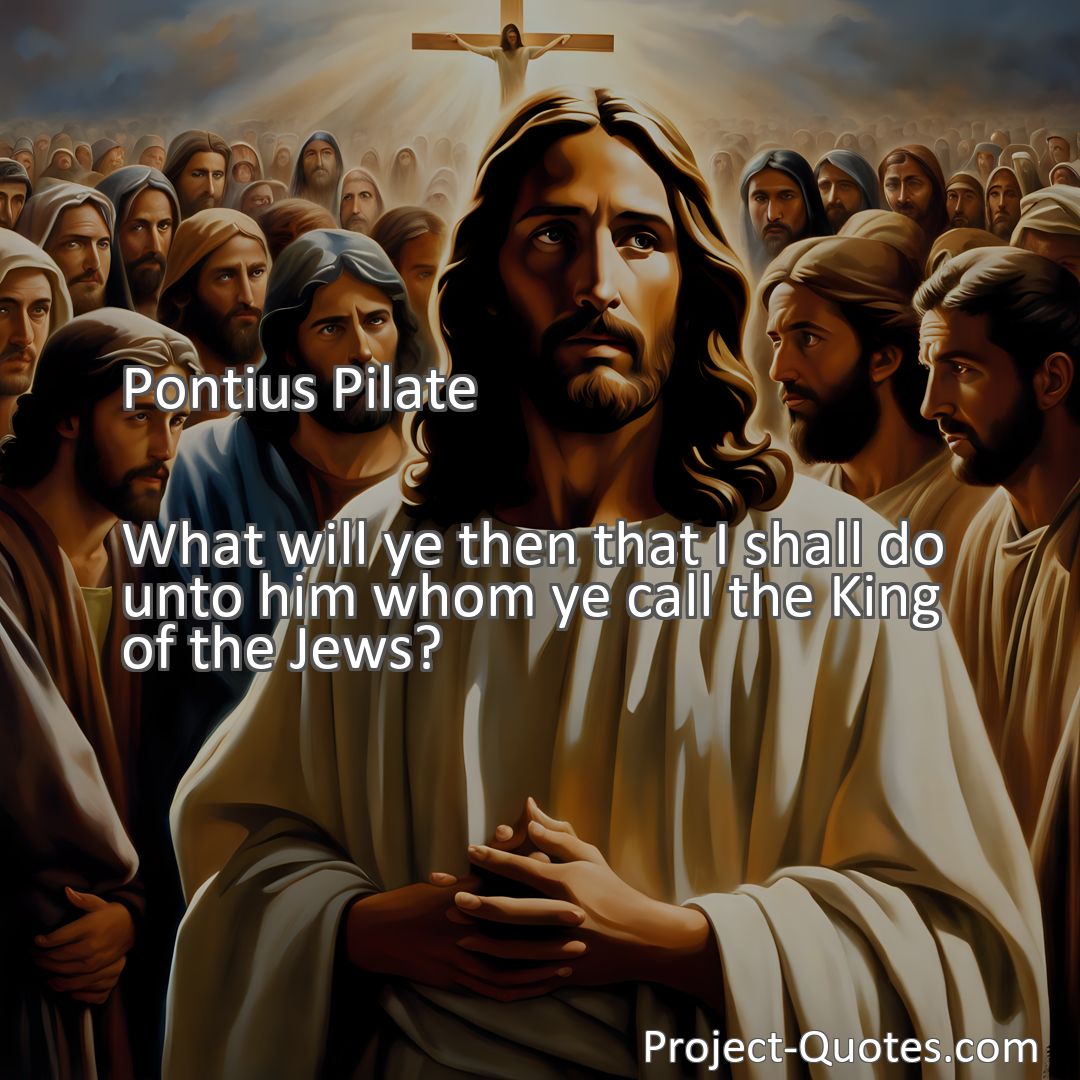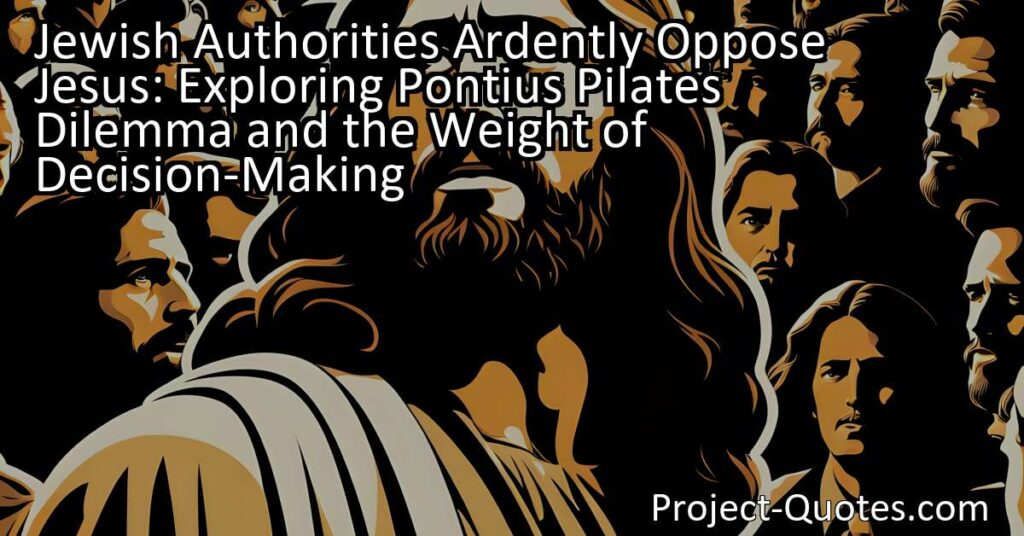What will ye then that I shall do unto him whom ye call the King of the Jews?
Pontius Pilate
Pontius Pilate, the Roman governor of Judaea, poses a thought-provoking question to the crowd gathered before him, asking what they want him to do with Jesus, whom they call the “King of the Jews.” This question delves into the historical context of Pilate’s position under Roman rule and explores the complexities of decision-making amidst conflicting opinions about Jesus. It highlights the challenges faced by leaders, emphasizing the importance of considering diverse perspectives when making moral and ethical decisions.
Table of Contents
Meaning of Quote – What will ye then that I shall do unto him whom ye call the King of the Jews?
In the famous biblical passage, Pontius Pilate, the Roman governor of Judaea, poses a thought-provoking question to the crowd gathered before him. Addressing the people who refer to Jesus as the “King of the Jews,” Pilate inquires, “What will ye then that I shall do unto him?” This question, uttered by a historical figure during one of the most significant moments in Christian history, encapsulates the dilemma faced by Pilate and explores themes of power, authority, and the complexity of human decision-making.
To truly understand the weight of Pilate’s question, it is crucial to delve into the historical context in which it was asked. During the first century AD, the region of Judaea was under Roman rule, and Pilate served as the representative of the Roman Empire in the province. With an authoritarian reign and a relentless pursuit of economic and political control, Rome maintained its dominance over vast territories, including Judaea.
During this time, a religious movement led by Jesus of Nazareth began to gain momentum in Judaea. Many of Jesus’s followers believed him to be the long-awaited Messiah, the anointed King who would deliver them from oppression and establish a new era of justice and righteousness. It is in this context that Pilate finds himself confronted by a swirling confluence of religious fervor, political intrigue, and personal decision-making.
Pilate’s question to the crowd reveals his struggle to decipher the truth amidst a charged atmosphere. As the governor, Pilate had the authority to pass judgment on Jesus, either condemning him to death or setting him free. But faced with conflicting reports and unsure of Jesus’s actual intentions, Pilate turns towards the crowd for guidance. In doing so, Pilate recognizes the gravity of the decision he is about to make and seeks the input of those who both support and oppose Jesus.
The question, “What will ye then that I shall do unto him whom ye call the King of the Jews?” encapsulates the challenge of leadership and the complexities of making decisions that have far-reaching consequences. Pilate, a Roman official with the burden of maintaining order, is confronted with the situation of determining the fate of an individual who has stirred up immense controversy.
When analyzing this quote, it is crucial to understand Pilate’s position within the bureaucratic structure of the Roman Empire. As a representative of Rome, Pilate’s primary objective was to ensure stability, prevent unrest, and maintain the authority of the empire. Any potential threat to these goals had to be dealt with swiftly and efficiently, regardless of individual beliefs or moral qualms.
However, Pilate’s encounter with Jesus presents a unique challenge. Rather than a military leader or a political dissident, Jesus is a spiritual figure whose teachings have resonated with a significant portion of the population. Pilate likely views Jesus as an enigmatic figure who possesses the potential to disrupt the delicate balance of power in the region.
While some Jewish authorities ardently oppose Jesus, accusing him of blasphemy and inciting rebellion against Rome, others embrace him as a spiritual leader and the long-awaited Messiah. Pilate, aware of the religious sensitivities that often ignited conflict in the region, recognizes the need to navigate this delicate situation with prudence.
This recognition is reflected in his question to the crowd. Pilate seeks the opinions and desires of the people who refer to Jesus as their king. He acknowledges that the perception of Jesus varies among the populace and understands the significance of taking their opinions into account before making a definitive ruling.
This question is a testament to the challenging nature of leadership and decision-making. Pilate’s inquiry embodies the struggle to balance personal beliefs, political interests, and public sentimenta dilemma that leaders throughout history have grappled with. Pilate does not merely dictate his decision; instead, he seeks guidance from the very individuals affected by his ruling, acknowledging their agency and allowing them to play a role in determining Jesus’s fate.
In conclusion, Pontius Pilate’s question, “What will ye then that I shall do unto him whom ye call the King of the Jews?” encapsulates the complex nature of decision-making and leadership when confronted with multifaceted circumstances. Pilate’s query demonstrates his recognition of the diverse opinions surrounding Jesus and his willingness to include the voices of the people in his decision. This quote serves as a timeless reminder of the challenges leaders face and the moral and ethical dilemmas that arise when navigating conflicting interests.
I hope this quote inspired image brings you hope and peace. Share it with someone who needs it today!


